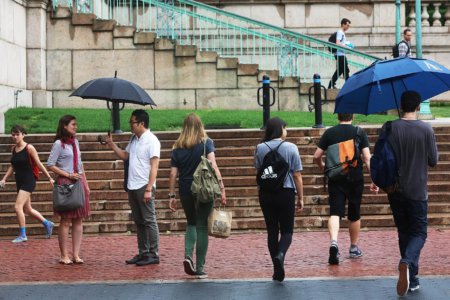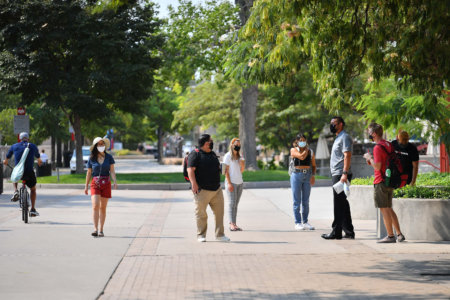
India and Australia have established diplomatic relations that will continue to strengthen under several initiatives between both countries.
On top of this list is the signing of a Memorandum of Understanding (MoU) on Tourism cooperation in February which would see the two countries exchanging information related to tourism and student mobility, making travel and relocation easier.
Other discussion points include an investment in tourism and hospitality sectors, visits of tour operators and wholesalers, media and opinion makers, interest in major cultural, artistic, and sporting events.
Recent development of the MoU is the establishment of a task force for mutual qualification recognition between both countries. Through this, Indian students will no longer have to take additional certifications or qualifications to be eligible for entry into Australian universities, and vice versa. It will also enable easier two-way mobility for educational purposes between the two countries.
Australia faced a blow in its international higher education sector during the pandemic, which forced the country to close its borders to the world. The qualifications recognition arrangement is a crucial initiative to enable degree-qualified professionals to move easily between both countries, opening up job opportunities to fill in the gaps in Australia’s workforce.
This comes as India and Australia work to improve bilateral relations in the realms of trade, free movement, and education, an effort that is steadily gaining momentum. For example, a virtual summit in New Delhi was held on Monday to discuss a series of initiatives in the areas of student mobility, critical minerals, clean energy, and tax benefits for investments in sovereign funds.
In his opening remarks, Indian Prime Minister Narendra Modi expressed approval at the “remarkable progress” that has been made on the Comprehensive Economic Cooperation Agreement (CECA), which will boost economic ties between the two countries.
“I am confident that the remaining issues will also be agreed upon soon. The early completion of CECA will be crucial for our economic relations, economic revival and economic security,” he said.

A set of initiatives are being set up to address employability issues in both India and Australia. Source: Saeed Khan/AFP
Improved India and Australia relations broaden prospects for students
Australia has been a popular study destination for Indians for the better part of two decades. In 2019, some 115,000 Indian students were pursuing their education in Australia. When the Australian border reopened last December, Indians were among the first international students to return to their universities.
Indian students are among the largest source country of international students in Australia. A recent report found that Indian students make up the second-largest international student population in Victoria.
Part of Australia’s appeal includes the many attractive post-study opportunities available to international students. A range of work visas is available to eligible international students in certain fields, many of which can lead to permanent residency.
During their university years, international students can participate in the SAIEP (Study Australia Industry Immersion Programme), an initiative by the Australian Trade and Investment Commission to engage in real-world industry projects and improve post-study employment prospects.
Experts are hoping that this improved relationship can boost students’ prospects in India and Australia. At the moment, Australian universities are struggling to provide enough trained engineers and computer scientists, among other roles, to meet the rising demands of the IT industry.
Meanwhile, employability rates for recent graduates in India are at an all-time low. Less than half of engineering graduates were rated employable in the India Skills Report, with students from other degree programmes ranking even lower.
The Australian Department of Foreign Affairs and Trade stated in a recent report that due to the “patchy” quality of the Indian education system, the country “cannot meet the demand for education on its own”. Much of this stems from a lack of educational oversight and curriculum standards.
“Getting education right is critical for India to maximise the potential of its demographic dividend by ensuring its millions of young people are equipped to enter the workforce and able to adjust to rapid technological change,” the analysis detailed.
“Australia should look to increase the number of high calibre Indian students at its universities and deepen two-way research links while continuing to welcome Indian students who seek an Australian education primarily for a migration outcome.”










